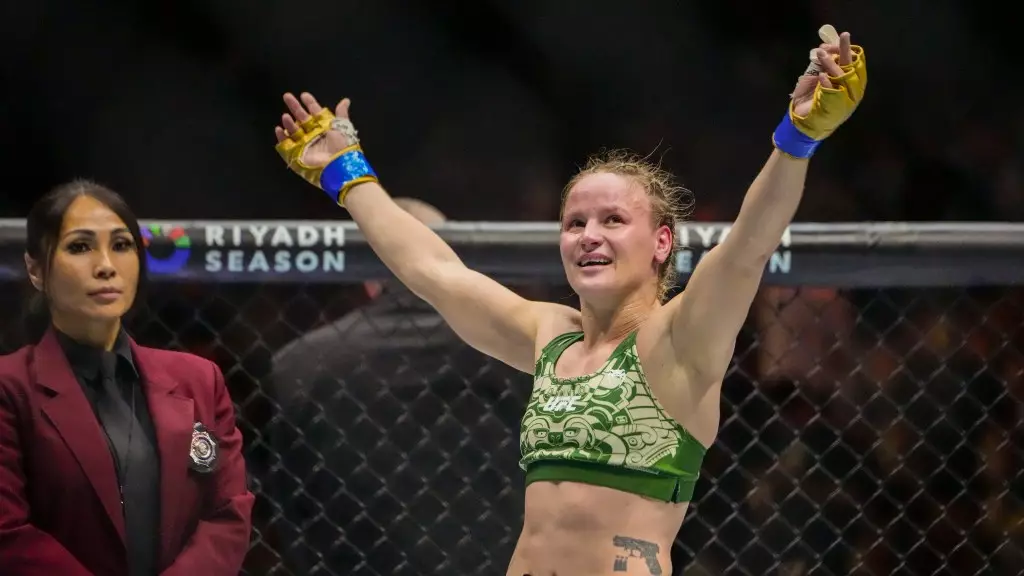In the high-stakes arena of mixed martial arts, where every fight can redefine an athlete’s legacy, Valentina Shevchenko has emerged anew. After a prolonged absence from championship glory—following her decision loss to Alexa Grasso at UFC 285 in March 2023—Shevchenko (24-4-1 MMA, 13-3-1 UFC) recently reclaimed her place atop the women’s flyweight division. Her victory over Grasso in a closely watched rematch serves as a testament to Shevchenko’s evolution as a fighter and her unwavering determination. With this triumph, she has not merely returned; she has signaled a comeback infused with renewed vigor and purpose.
Inside the press conference, after taking back the title she felt had been unjustly stripped from her, Shevchenko exuded a blend of professionalism and palpable joy. “I feel different, powerful, and stronger than I did a few years ago,” she asserted to MMA Junkie and additional media outlets. This reflection points to a significant psychological milestone for the athlete—a renewed confidence that seems to have sprouted from extensive training camps pairing physical demands with mental evolution. She expressed that a fighter’s ability to evolve is crucial; stagnation is a signal that it might be time to retire. This acknowledgment speaks not only to her resilience but also to her growth mindset, showcasing the dual facets of her training regimen that focuses equally on both physical and mental preparation.
During her reflections at the post-fight press gathering, Shevchenko conveyed the weight of her journey back to the title. For her, the belt represents not just a piece of hardware, but a significant narrative comprising losses, victories, and hard-earned lessons. “This belt, what it means for me, is the story of losing it due to my errors,” she remarked, shedding light on the journey that had culminated in this moment of triumph. The mental and emotional toll of both the fight preparation and the aftermath of her previous encounters with Grasso have now transformed into a positive driving force. Winning the title back was, therefore, an emotional catharsis for Shevchenko—a reclamation of not only her belt but her identity as a champion.
Interestingly, Shevchenko refrained from naming her next potential opponent, opting instead to entrust the UFC with the matchmaking process. “To be the best, you have to win against the best,” she stated, emphasizing her mental benchmark for greatness. It is this mindset that underscores her relentless pursuit of excellence—a mantra that has defined her career. The question of her future fights now lingers: will she face a familiar foe, or will the matchmakers challenge her with emerging contenders? Whatever the case may be, Shevchenko seems prepared, highlighting the importance of continual adaptation and the pursuit of new techniques to stay ahead in a rapidly changing landscape.
As Shevchenko looks ahead, the pathway is layered with challenges and opportunities. The physical preparation is but one facet of her training; the psychological preparation plays an equally vital role. The intense training camps she endures are not just about tactics and techniques but also about dismantling mental barriers that could hinder her performance in the cage. Every night spent strategizing and visualizing is a testament to her commitment to not only maintain her title but evolve beyond her previous iterations as a fighter.
Valentina Shevchenko’s triumphant return to title contention encapsulates both her relentless spirit and strategic acumen in a sport that rarely allows for complacency. By merging emotional intelligence with physical readiness, she has authored a new chapter in her storied career, leaving an indelible mark on the landscape of women’s MMA. As fans eagerly await her next move, one thing remains certain: in the ever-competitive world of the UFC, Shevchenko is not just back—she is transformed, ready to solidify her legend.

